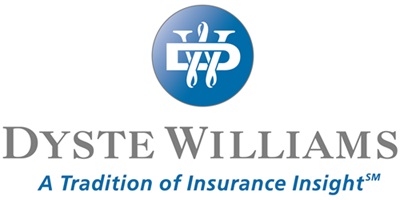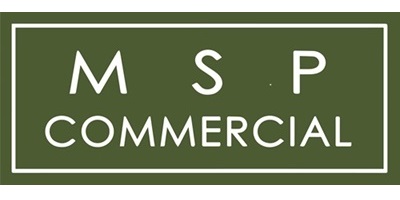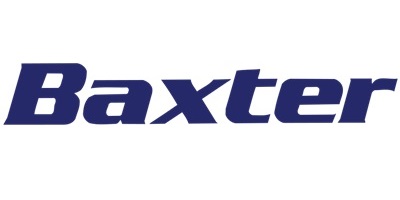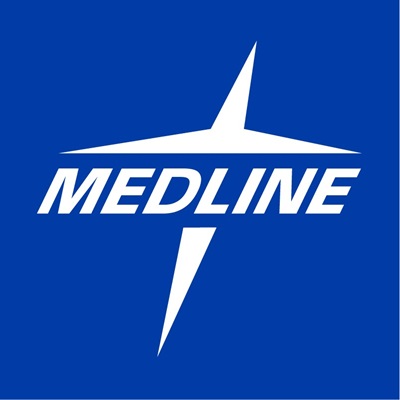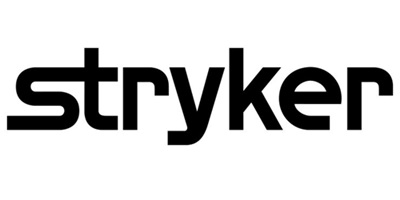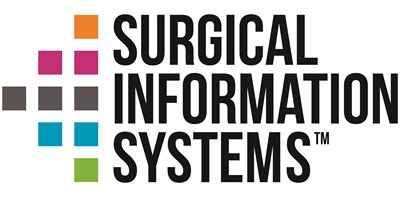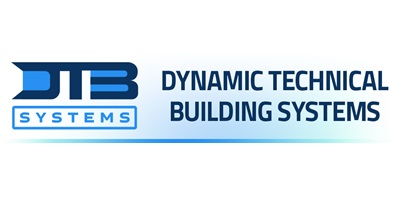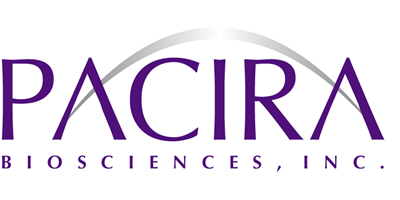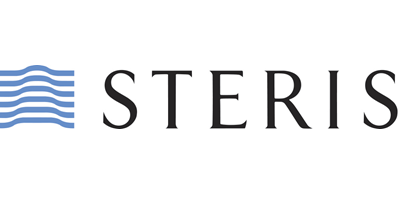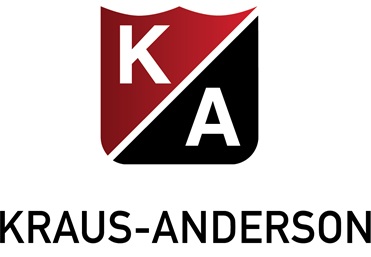2024 MNASCA Annual Conference
Thank you for attending the 2024 MNASCA Annual Conference! We hope the sessions, exhibitor interactions, and networking opportunities provided valuable information and insights to help you better position your ASC for success.
The program was approved for up to 12.0 hours of Administrator Education Units (AEUs) and up to 3.0 hours of Infection Prevention Contact Hours (IPCHs) by BASC Provider #6240. For more information, please review the BASC Approval Letter and Content Breakdown. The conference was also designed to meet contact hours for the Minnesota Board of Nursing continuing education requirements.
View the full agenda
For more information about the educational sessions and presenter materials, please see the details below.
Thursday, October 3, 2024
8:25 – 9:25 a.m.
ASC 2024 Legislative & Regulatory Update
Tom Poul, MNASCA Lobbyist, Poul Haas, PA
Alex Taira, Regulatory Policy and Research Manager, ASCA
AEU Category: Regulatory and Legal Issues
Learn about key outcomes from the 2024 legislative session and ways your advocacy mattered on prior authorization reform, medical debt regulation, and more. Hear important federal healthcare-related updates and new regulations affecting ASCs. Bring your questions to understand better how these changes might impact your operations.
Learning Objectives:
- Provide updates on legislative topics affecting ASCs
- Inform audience of upcoming legislative priorities
- Help guide ASC leadership in navigating legal topics and public policy
Resources:
9:30 – 10:30 a.m.
11:15 a.m. - 12:15 p.m.
Cultivating a Healthy and Productive Workplace Culture
Georgine Madden, Organizational Development Consultant and Founder of GEORGE: Purpose, People, Performance, Ltd.
AEU Category: Human Resources
As leaders, we all want to cultivate a workplace environment that supports the mission and values of the organization, provides meaningful work for employees, and serves our patients and community with excellence. Join us for an interactive, two-part workshop and bring your whole team to make a lasting impact on your ASC’s success!
Learning Objectives:
Discover leadership strategies for influencing and sustaining a healthy and productive workplace culture:
- Establish a shared definition for culture and engagement
- Understand how culture and engagement are observed in the organization
- Set a strategic foundation for influencing and sustaining a healthy and productive workplace culture
Collaborate with your professional colleagues on action plans and practical ideas that you can implement in your center to enhance engagement, boost productivity, and cultivate healthy culture:
- Understand the three components that are influential to integrating your values into your culture
- Collaborate with and share action ideas with MNASCA colleagues
- Build a roadmap with practical ideas that can be implemented to enhance engagement, boost productivity, and cultivate healthy culture
Resources:
1:45 – 2:45 p.m.
A Dialogue with State Leaders
Moderator: Tom Poul, MNASCA Lobbyist, Poul Haas, PA
Panelists:
Rep. Liz Reyer, Member, House Health Finance and Policy
Sen. Jim Abeler, Member, Senate Health and Human Services
Stefan Gildemeister State Health Economist and Director of the Health Economics Program
AEU Category: Regulatory and Legal Issues
Join us for an engaging dialogue with Minnesota state leaders in health care finance and policy. Hear about significant health care legislation that passed in the 2024 session and priorities for 2025. Learn about ongoing regulatory activities that will shape our state’s healthcare marketplace and how the upcoming elections might impact the regulatory and legislative landscape.
Learning Objectives:
- Hear from policymakers about significant legislative issues impacting ASCs
- Learn about current analytic efforts underway in the Health Economics Program and key initiatives for the upcoming year
- Recognize the roles and interests of various state leaders in shaping Minnesota’s approach to health care
Resources:
3:00 – 4:00 p.m.
Surveying Success: Charting the Course for ASC Excellence
Participating Moderator: Allison Stock, JD, RN, Chief Operating Officer, Surgical Management Professionals
Panelists:
Jim Grana, CHSP, Physical Environment Specialist, Standards Interpretation Group, The Joint Commission
Ray Grundman, MSN, MPA, FNP-BC, CASC, AAAHC Surveyor and Educator
Nicole Osterloh, RN, Federal Operations Supervisor, Licensing and Certification, MN Department of Health
AEU Category: Regulatory and Legal Issues
Join us for an informative session featuring the latest updates from the Minnesota Department of Health and ASC accreditation agencies. Learn about the most common citations and key areas to monitor and get essential tips and resources to ensure your center is fully prepared for your next survey.
Learning Objectives:
- Examine common deficiencies from recent surveys and how can centers proactively address these issues
- Discover key things that ASCs can do to make the survey process go smoothly
- Explore emerging trends and areas of focus for surveyors and how ASCs can be prepared to address them effectively
- Get resources to help your ASC improve compliance and be prepared for surveys
Resources:
4:10 – 5:10 p.m.
Surgical Precision in Quality Initiatives
Mary K. Ryan, MBA, BSN, RN, CAIP, CASC, Senior Consultant, Amblitel
AEU Category: Quality Management
IPCH Category: Surveillance, Data Collection and Analysis
This interactive session will transform how you approach quality in your ASC. Learn from real-life case studies and data-driven insights to fine-tune your practices and processes. Explore leading-edge strategies to enhance patient care, boost outcomes, and streamline operations. Walk away with a clear, actionable strategy to successfully roll out quality initiatives in your ASC, including change management, resource allocation, and measuring success.
Learning Objectives:
- Understand the Importance of Quality Initiatives in ASCs and their impact on patient care and operational efficiency
- Analyze real-life case studies to identify successful quality improvement strategies and common pitfalls in ASCs
- Explore leading-edge strategies for enhancing patient care, boosting outcomes, and streamlining operations in ASCs
- Formulate clear, actionable goals for your center and identify effective strategies for rolling out quality initiatives
Resources:
Friday, October 4, 2024
8:05 – 9:05 a.m.
Tales From the (En)Crypt: Protecting Your Practice from Cyber Threats
Participating Moderator: Nels Dyste, Vice President, Dyste Williams
Panelists:
Eric Senst, Director of Sales, Booyna Systems
Michele C.S. Lange, Esq., CIPP/US, Managing Director & Counsel, Company Employee Adjuster, Travelers
AEU Category: Financial/Regulatory and Legal Issues
In today’s digital age, healthcare organizations are increasingly targeted by cyber threats. While it may feel like a scene from a horror movie, there are concrete steps that ASCs can take to defend themselves against cyber incidents. Delve into recent cyber events within the health care sector to understand the nature and impact of these threats and gain insights about how to respond if your center or clinic experiences a cyber-attack. Join us for this panel discussion to discover tangible tips to protect patient data, maintain continuity of care, and stay ahead of evolving cyber threats.
Learning Objectives:
- Investigate the current cyber threat landscape, trends, and recent events that have impacted the healthcare sector
- Explore top security tips to better secure your ASC
- Learn how cyber claims are handled and what is being done to help prevent them
- Find out what to do if you experience a breach
Resources:
9:10 – 10:10 a.m.
Breakout Session - Dealing with Difficult Patients
Debbie Fuehrer, MA, LPCC, Mind-Body Medicine Counselor, Integrative Medicine and Health, Mayo Clinic
John Mack, LICSW, MSW, Mind Body Medicine Counselor, Integrative Medicine and Health Program, Mayo Clinic
AEU Category: Delivery of Patient Care
In the health care arena, dealing with difficult patients is inevitable. Explore effective strategies to navigate these challenging situations with confidence and compassion. During this session you will gain insights into the underlying causes of difficult behaviors and how to approach them with empathy and discover powerful communication strategies that foster trust and understanding. Equip yourself with practical tools to de-escalate tense situations and learn how to maintain professional well-being while managing stress and emotional fatigue that can arise from challenging interactions.
Learning Objectives:
- Identify common behaviors and attitudes that contribute to challenging patient interactions.
- Recognize the underlying factors that may lead to a patient being perceived as difficult, such as stress, fear, or misunderstanding.
- Demonstrate active listening techniques to better understand patient concerns and emotions.
- Practice using empathetic communication to build rapport and trust with patients.
- Learn strategies for de-escalating tense situations through verbal and non-verbal communication.
- Develop strategies for managing personal stress and emotions to maintain a calm and professional demeanor.
Resources:
9:10 – 10:10 a.m.
Breakout Session - The High Stakes of SSIs: Do You Have Skin in the Game?
Madison Sackett, MSN, RN, CNOR, Perioperative Clinical Specialist, Solventum
AEU Category: Quality Management
IPCH Category: Infection Prevention Education and Training
Delve into the critical aspects of Surgical Site Infections (SSIs) and discover how the interplay between microbial and human cells can elevate infection risks during surgeries. Understand the impacts of SSIs on patients and your practice and learn about the CDC's formula for assessing SSI risk. Explore key considerations for selecting surgical skin preparation methods and the importance of maintaining a sterile surgical environment to effectively manage and reduce SSI risks.
Learning Objectives:
- Examine the relationship between microbial cells and human cells
- Recognize the financial and personal impact of surgical site infections (SSIs)
- Explain the CDC’s conceptual formula for SSI risk in relation to patient and process variables
- Describe the considerations for surgical skin prep selection
- Discuss the importance of creating a sterile surface to help manage the risk of SSIs
9:10 – 10:10 a.m.
Breakout Session - Integrating Safety into Your Healthcare Practice
Rasana Rana and Andrew Nyman, Consultants, MNOSHA Workplace Safety, MN Department of Labor & Industry
In the evolving landscape of healthcare, integrating safety into your practice is no longer optional; it’s essential. This session will explore how Minnesota OSHA's AWAIR program can guide ASCs in establishing a robust safety and health management system. Learn to develop effective safety programs, engage employees in meaningful ways, and implement best practices for hazard identification and ergonomics. Gain insights into recent regulatory changes and workplace safety funding opportunities.
Learning Objectives:
- Understand key components of an effective safety and health management system
- Develop strategies to actively engage employees in safety initiatives and promote a culture of continuous improvement
- Explore best practices for safety committees, ergonomics programs, and other core elements of a comprehensive safety system
- Stay up-to-date on recent OSHA regulatory changes and their impact on healthcare practices
- Learn about available funding opportunities for safety and health training through OSHA grant programs
Resources:
10:15 – 11:30 a.m.
Surveying an SPD – The What’s, Why’s, and How’s of Preparing for Accreditation and Enhancing Patient Safety
Angela Ritchey, Clinical Education Specialist, STERIS
AEU Category: Regulatory and Legal Issues
IPCH Category: Infection Prevention Education and Training
Sterile Processing is a complex environment requiring training, education, and competency in several areas. This session will focus on introducing key areas often reviewed in accreditation surveys, identifying challenges related to infection prevention, and exploring strategies to mitigate the risk of infection. Through the identification of clinical standards and guidelines in the program, you will be able to survey the department effectively and apply tactics to enhance efficiency and efficacy of sterile processing practices.
Learning Objectives:
- Recognize common challenges related to infection prevention in the ASC sterile processing environment
- Identify areas for improvement that focus on decreasing healthcare infections
- Explore critical documentation requirements for high-level disinfection, sterilization records, and instrument maintenance
- Learn effective strategies for preparing SPD staff for accreditation surveys
Resources:
12:00 – 1:00 p.m.
From Burnout to Balance: Building Resilience with the SMART Model
Debbie Fuehrer, MA, LPCC, Mind-Body Medicine Counselor, Integrative Medicine and Health, Mayo Clinic
John Mack, LICSW, MSW, Mind Body Medicine Counselor, Integrative Medicine and Health Program, Mayo Clinic
AEU Category: Human Resources
In the high-pressure world of healthcare, stress can feel like a constant companion, often leading to burnout and diminished well-being. During the closing session, you will discover how stress impacts your mind and body, and learn practical, evidence-based techniques to reclaim your peace of mind. Through engaging discussions and interactive exercises, you will explore mindfulness practices that enhance your resilience, enabling you to navigate the challenges of your profession with grace and confidence. Your journey from burnout to balance starts here!
Learning Objectives:
- Explain the origins of stress, particularly from neuropsychological and behavioral perspective. (Comprehension)
- Examine practical approaches to decrease stress and increase resilience. (Analysis)
- Practice training attention to be more balanced, altruistic, flexible, sustained, and non-judgmental. (Application)
- Modify interpretations to move from fixed prejudices toward more flexible disposition. (Application)
- Develop skills such as gratitude, compassion, acceptance, meaning and purpose and forgiveness. (Synthesis)
- Choose a more meaningful and purposeful life. (Logotherapy)
Resources:
Questions?
For more information contact Laura Harris, MNASCA Executive Director, at [email protected].
|

